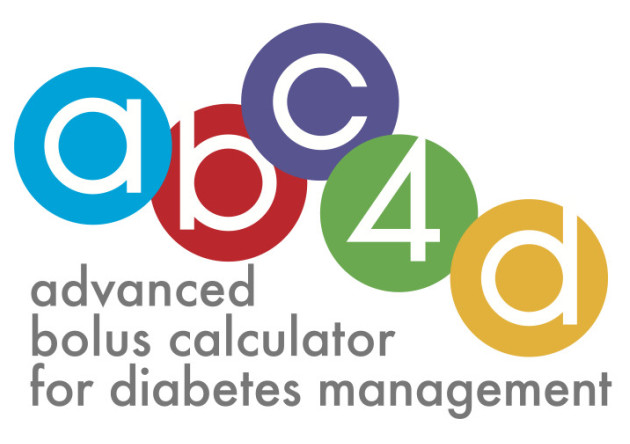Advanced Bolus Calculator for Diabetes (ABC4D)
Research Team: Dr Pau Herrero, Mr Ryan Armiger, Dr Peter Pesl, Dr Rebecca Unsworth, Ms Narvada Jugnee, Dr Monika Reddy, Prof Nick Oliver, Prof Des Johnston, Prof Chris Toumazou, and Dr Pantelis Georgiou.
 The recent increase in the use of technologies such as continuous glucose monitoring (CGM) and self-management mobile apps has led to a digital transformation in diabetes care. However, despite the increasing adoption of these technologies, fewer than one-third of people with Type 1 diabetes achieve their glycaemic targets. Hence, there is an urgent need to empower people living with diabetes with intelligent software tools that can automatically analyse and systematically provide safe, personalized, and effective therapeutic recommendations.
The recent increase in the use of technologies such as continuous glucose monitoring (CGM) and self-management mobile apps has led to a digital transformation in diabetes care. However, despite the increasing adoption of these technologies, fewer than one-third of people with Type 1 diabetes achieve their glycaemic targets. Hence, there is an urgent need to empower people living with diabetes with intelligent software tools that can automatically analyse and systematically provide safe, personalized, and effective therapeutic recommendations.
Insulin bolus calculators have been developed to aid insulin dose adjustment and are currently incorporated in most of the latest commercially available insulin pumps and some glucose meters. Although effective to some degree, they still fall short in achieving glycemic therapeutic targets due to the high variability in diabetes management.
At the Centre for Bio-inspired Technology, we have developed an Advanced Bolus Calculator for Diabetes (ABC4D) that uses continuous glucose monitoring (CGM), Run-to-Run control, and the artificial intelligence technique of Case-based Reasoning (CBR) to overcome these barriers.
The developed insulin recommendation algorithm has been implemented within a mobile app that communicates in real-time with a continuous glucose sensor and requires the user to manually input meals, and physical exercise information to calculate a recommended insulin dose that is tailored to the individual and the current circumstances. The algorithm also adapts its recommendation based on the outcomes of past recommended insulin doses and user behavior.
Clinical Trials
The safety and feasibility of the system have been evaluated in a pilot clinical trial including 10 adults with type 1 diabetes over 6 weeks. The results from the pilot study proved safety, feasibility and showed a trend towards improvement in glycemic control.
The clinical efficacy of the ABC4D system is currently being evaluated in a crossover randomised controlled trial including 37 participants and a 3-month intervention.
More information on ClinicalTrials.gov
Related Publications
- Pesl, P., Herrero, P., Reddy, M., Oliver, N., Johnston, D. G., Toumazou, C. & Georgiou, P. Case-based reasoning for insulin Bolus Advice: evaluation of case parameters in a six-week pilot study. Journal of diabetes science and technology 11, 37–42. (2017).
- Reddy, M., Pesl, P., Xenou, M., Toumazou, C., Johnston, D., Georgiou, P., Herrero, P. & Oliver, N. Clinical safety and feasibility of the advanced bolus calculator for type 1 diabetes based on case-based reasoning: a 6-week nonrandomized single-arm pilot study. Diabetes technology & therapeutics 18, 487–493. (2016).
- Pesl, P., Herrero, P., Reddy, M., Xenou, M., Oliver, N., Johnston, D., Toumazou, C. & Georgiou, P. An advanced bolus calculator for type 1 diabetes: system architecture and usability results. IEEE journal of biomedical and health informatics 20, 11–17. (2015)
- Herrero, P., Pesl, P., Bondia, J., Reddy, M., Oliver, N., Georgiou, P. & Toumazou, C. Method for automatic adjustment of an insulin bolus calculator: In silico robustness evaluation under intra-day variability. Computer Methods and Programs in Biomedicine. 119,1–8. (2015).
- Herrero, P., Pesl, P., Reddy, M., Oliver, N., Georgiou, P. & Toumazou, C. Advanced insulin bolus advisor based on run-to-run control and case-based reasoning. IEEE journal of biomedical and health informatics 19, 1087–1096. (2014)
